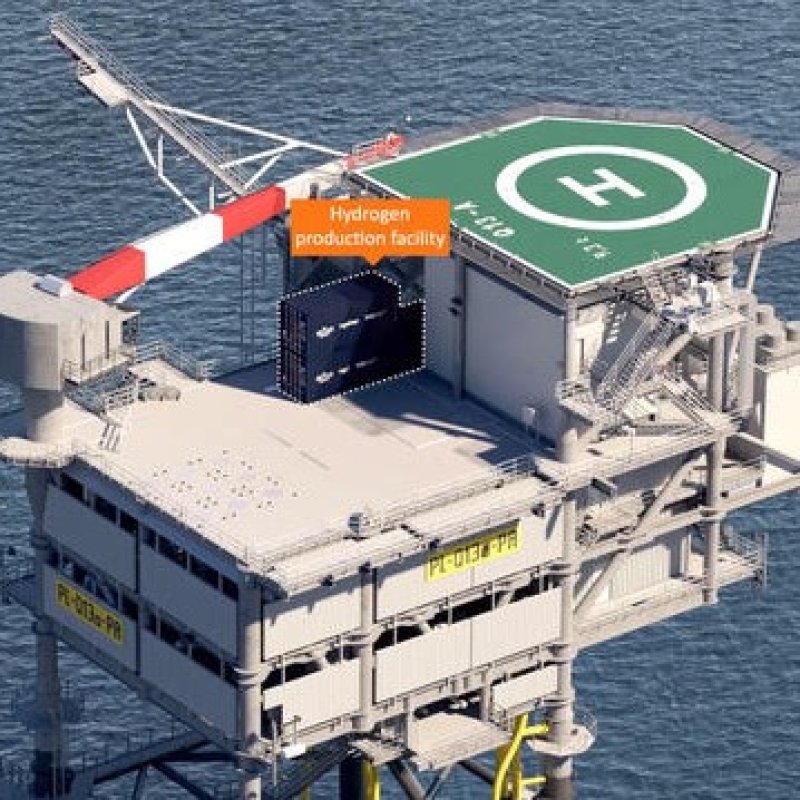With smart connections between current and future forms of energy production, integrated energy systems can help society make time, cost and space savings and reduce CO2 emissions. Hydrogen is an alternative to the use of natural gas in industrial processes, which currently produce a large amount of CO2 emissions. Marine energy and offshore wind can generate electricity that can be converted to hydrogen via the electrolysis of seawater and transported via existing gas pipelines. Transporting these hydrogen gas molecules through existing pipelines is much cheaper than transporting electrons via new electricity cables from wind farms on the North Sea to land.
Showcase

First green offshore hydrogen plant in the Netherlands
The North Sea is the first location that harbors a plant which will produce hydrogen in the future. Neptune Energy’s Q13-A oil and gas platform, located more than ten kilometers off the coast of the Netherlands, is the first fully electrified platform in the Netherlands. Neptune will participate in a pilot to convert seawater to demineralised water and will produce green hydrogen from sustainable electricity generated by renewable resources. The feasibility to generate green hydrogen from the water surrounding the platform will be explored.

